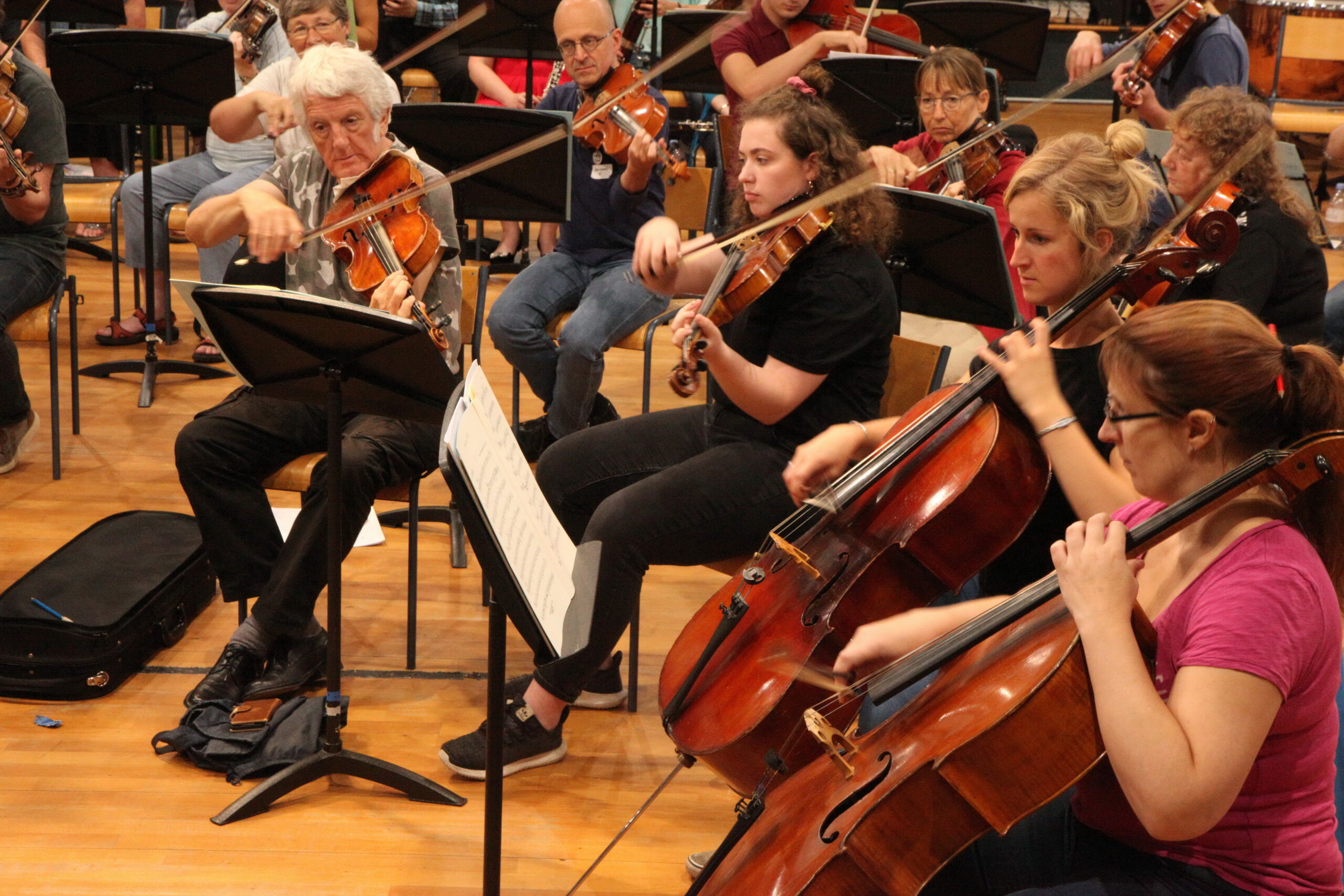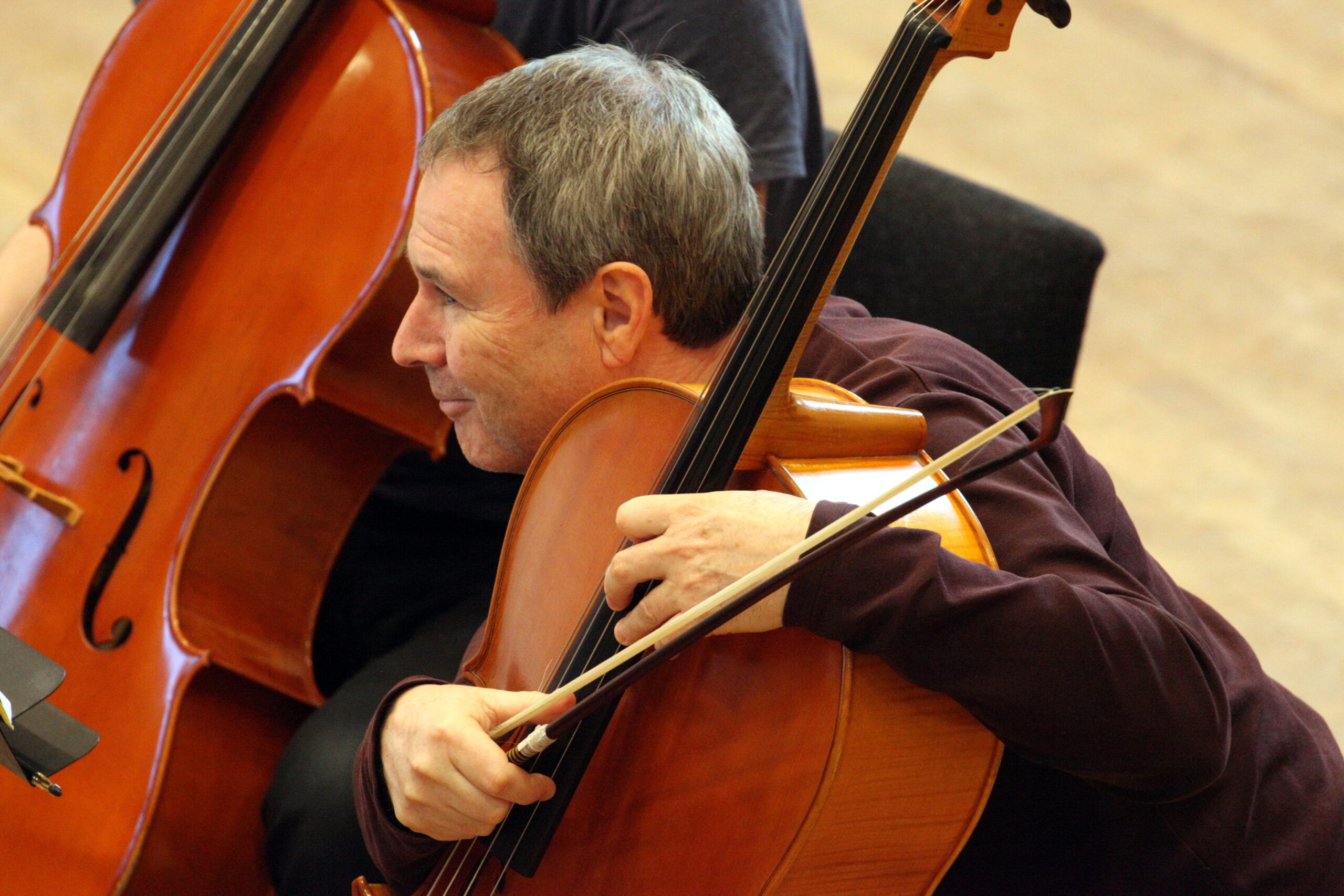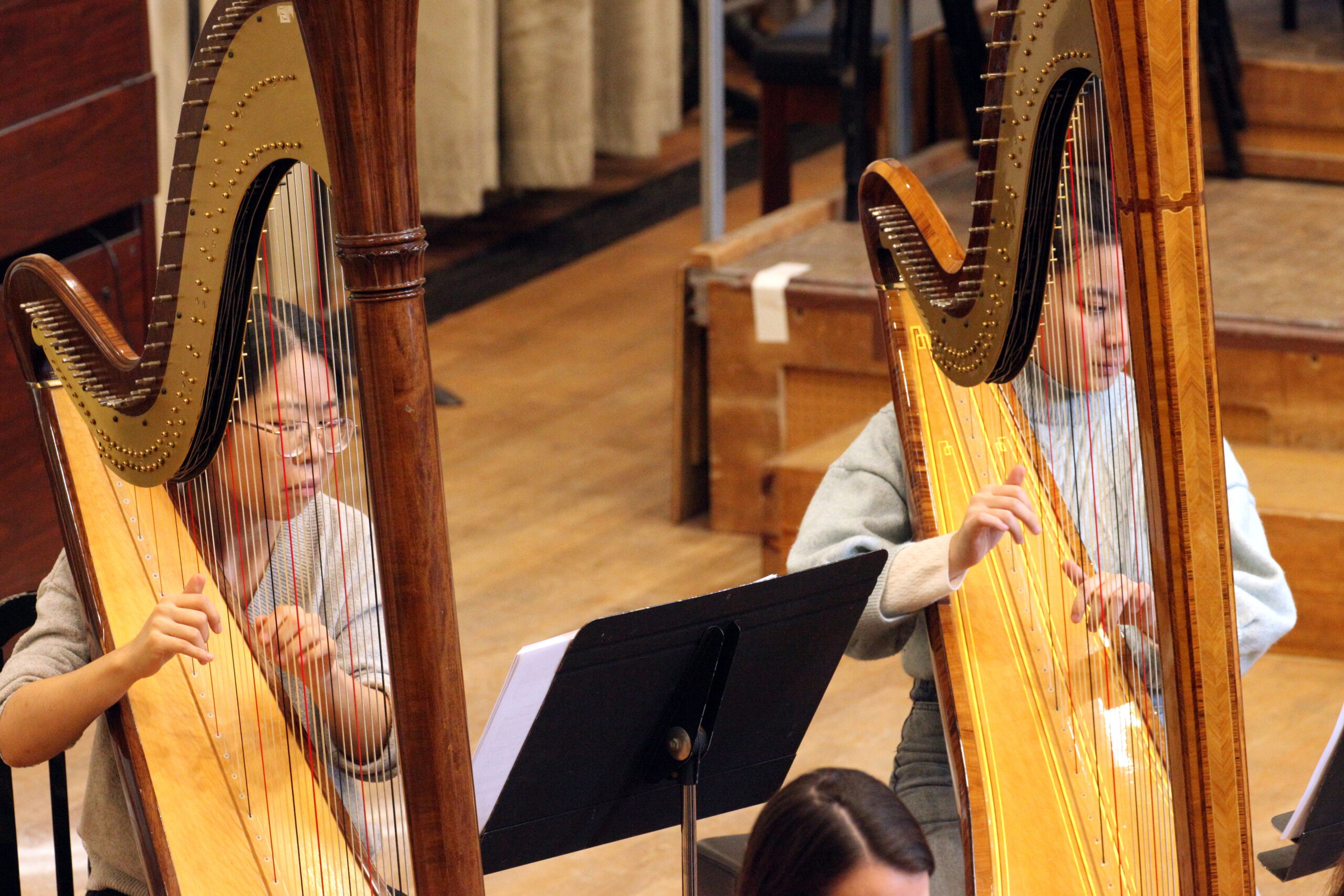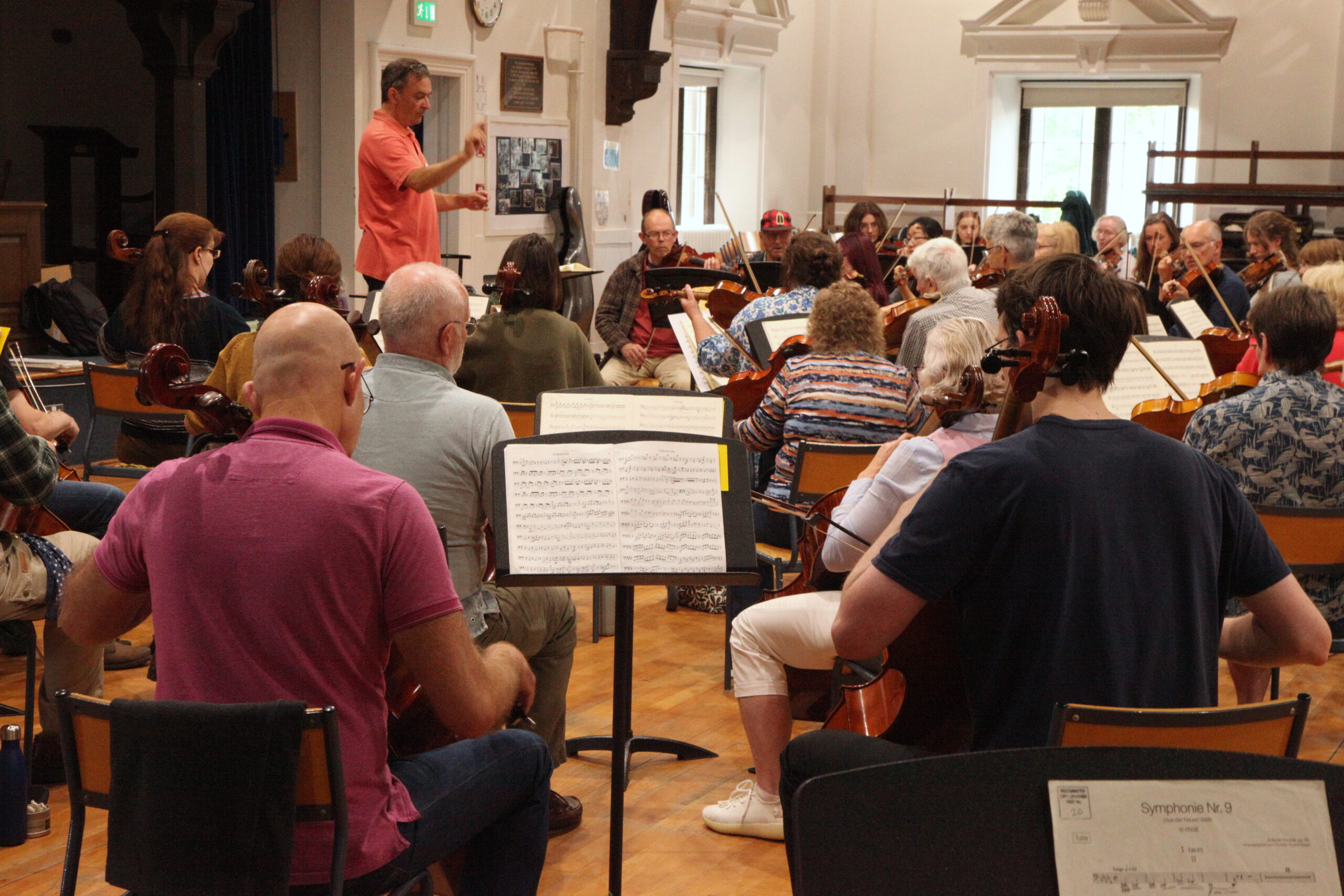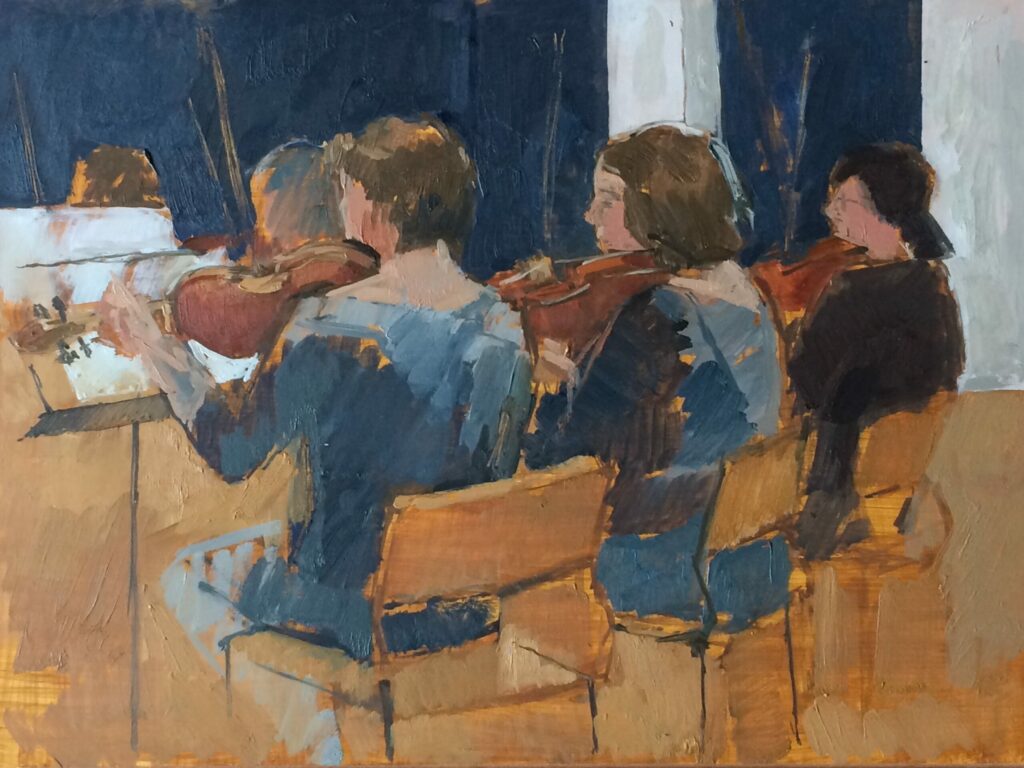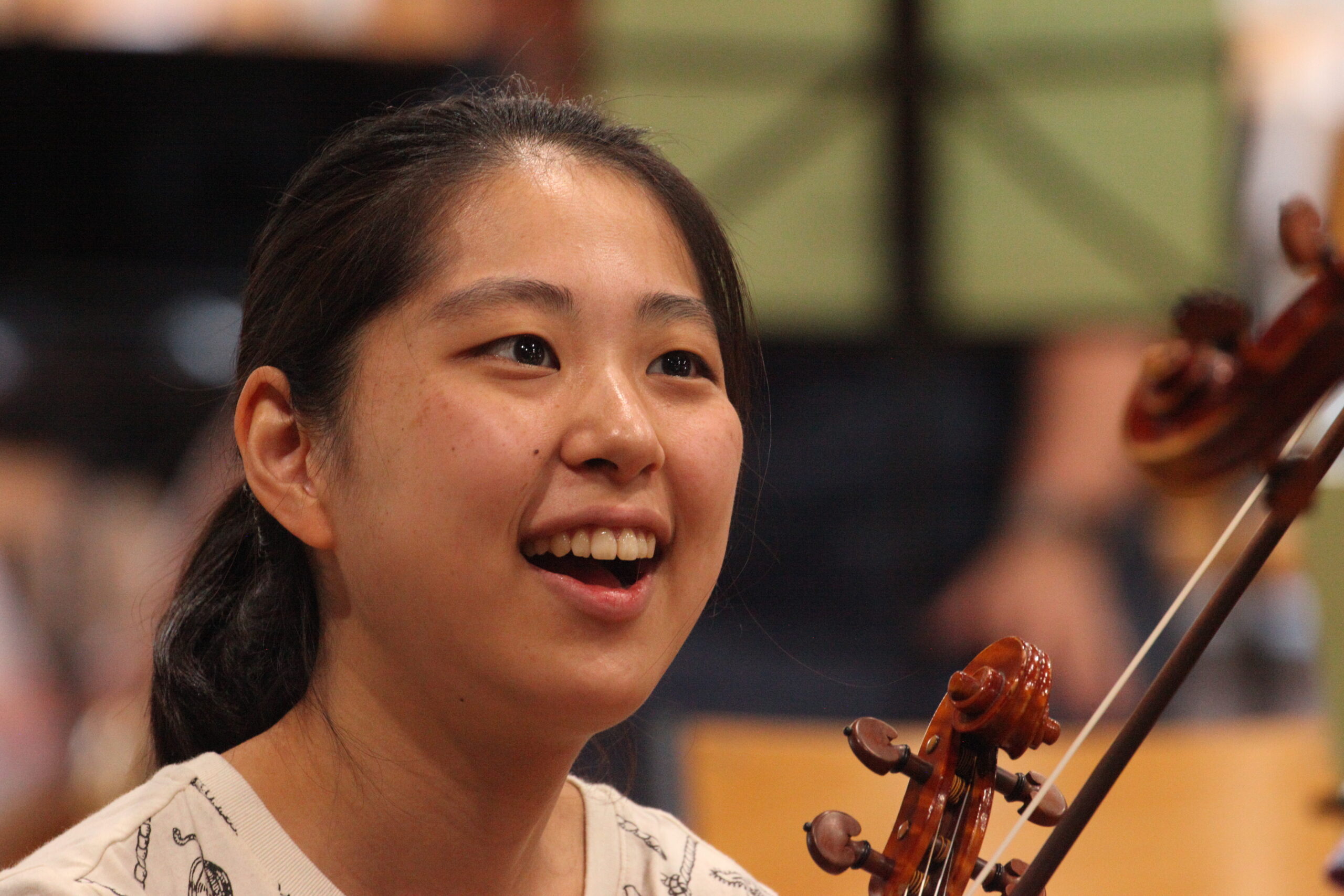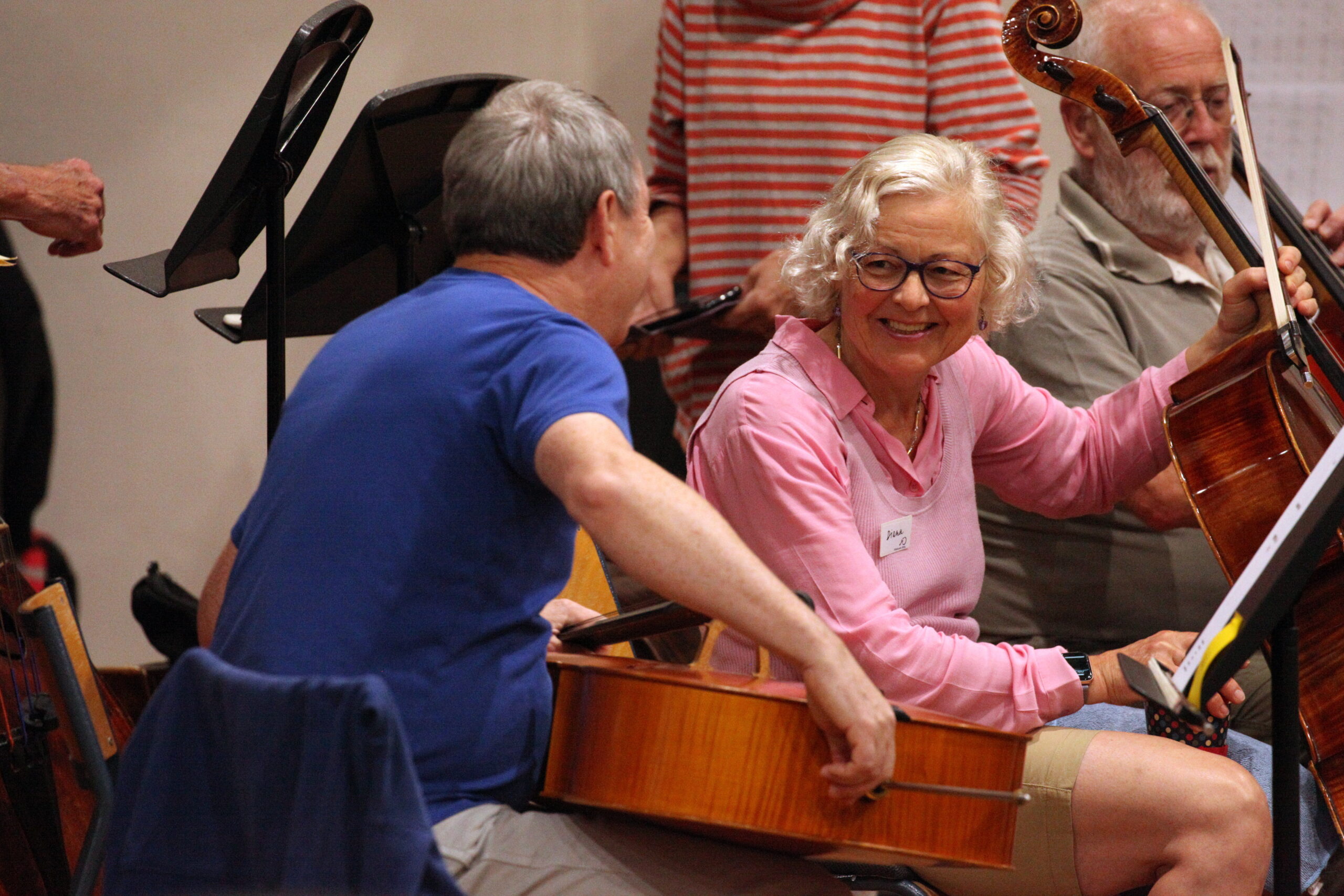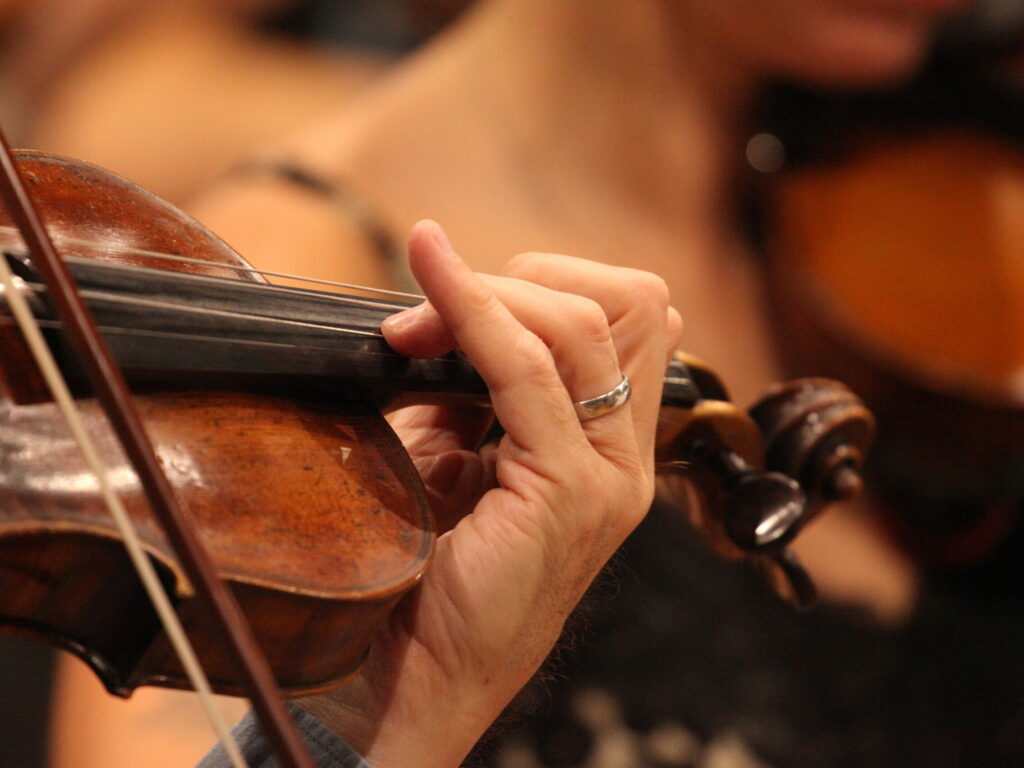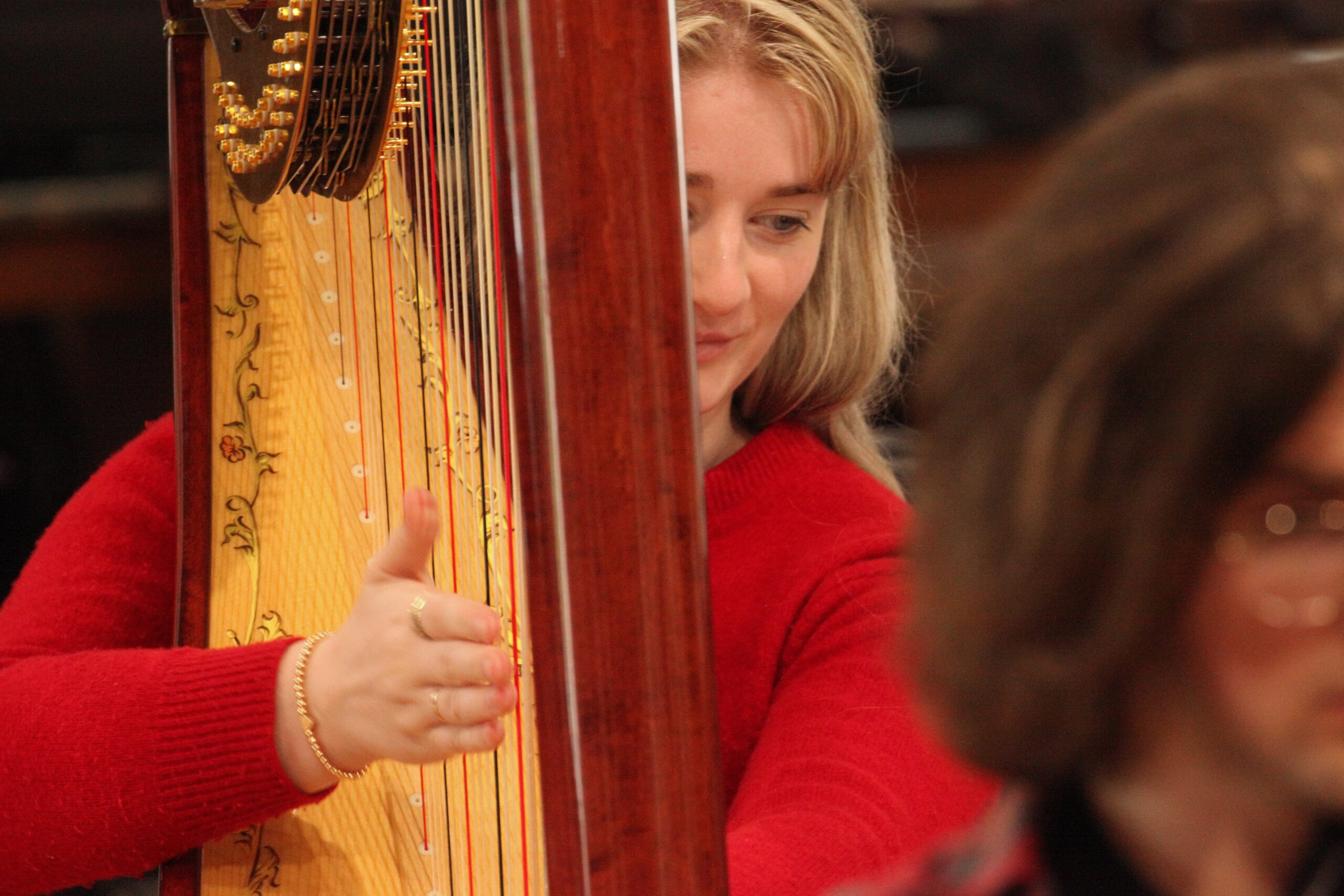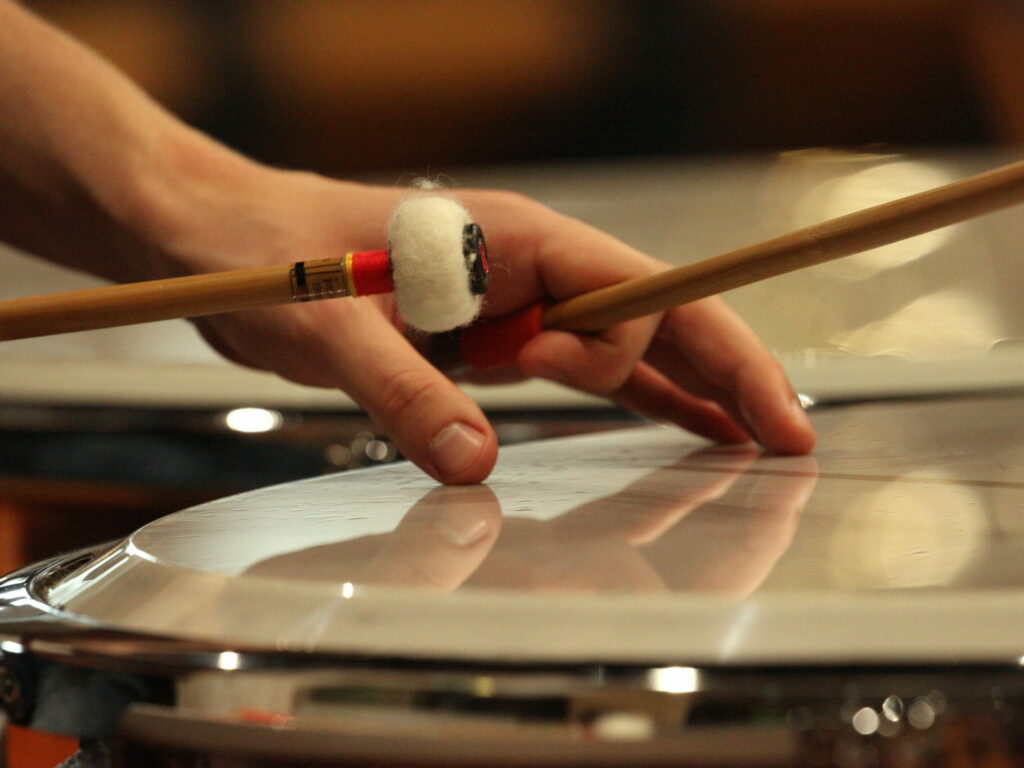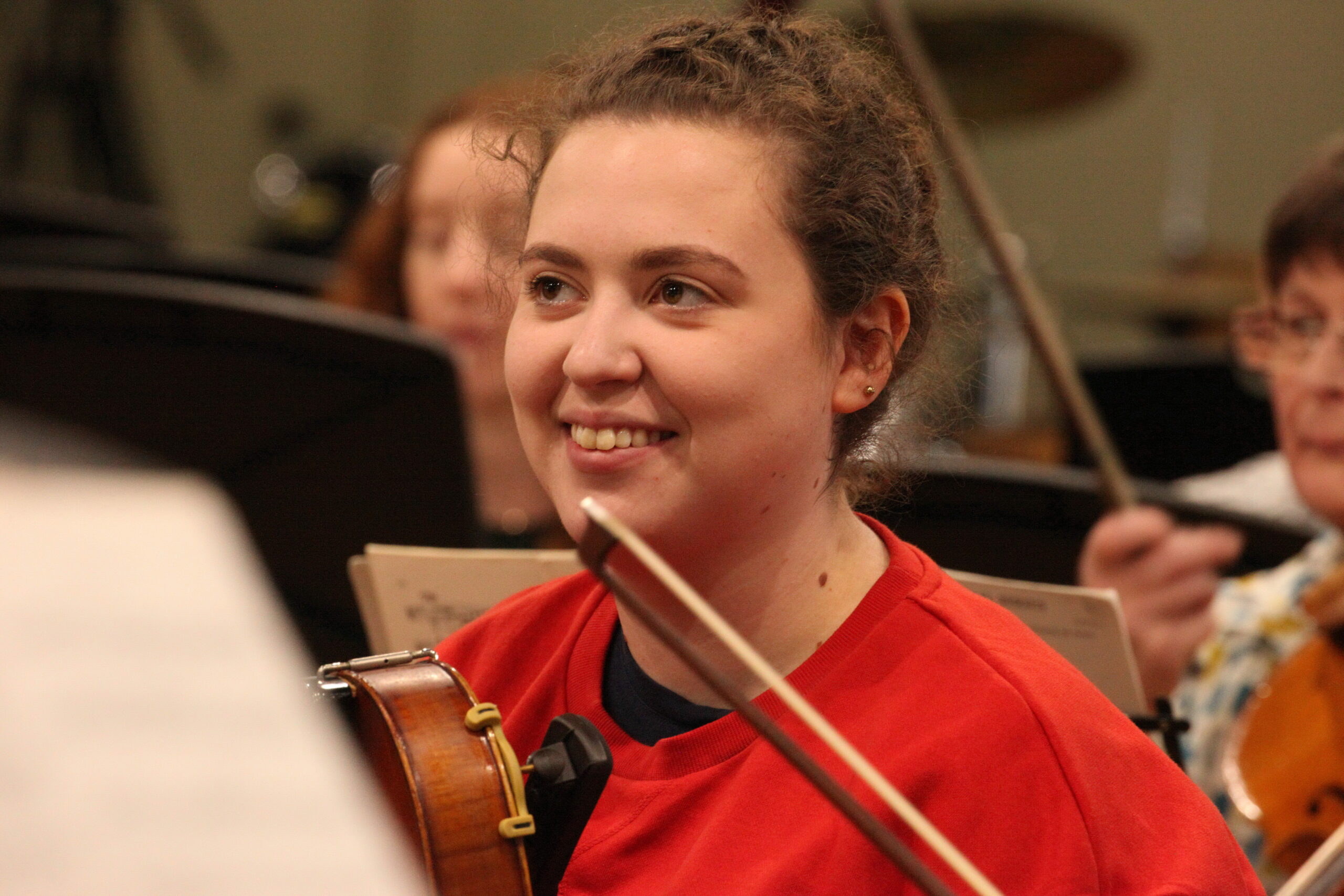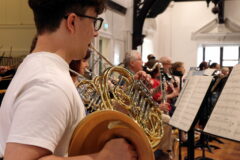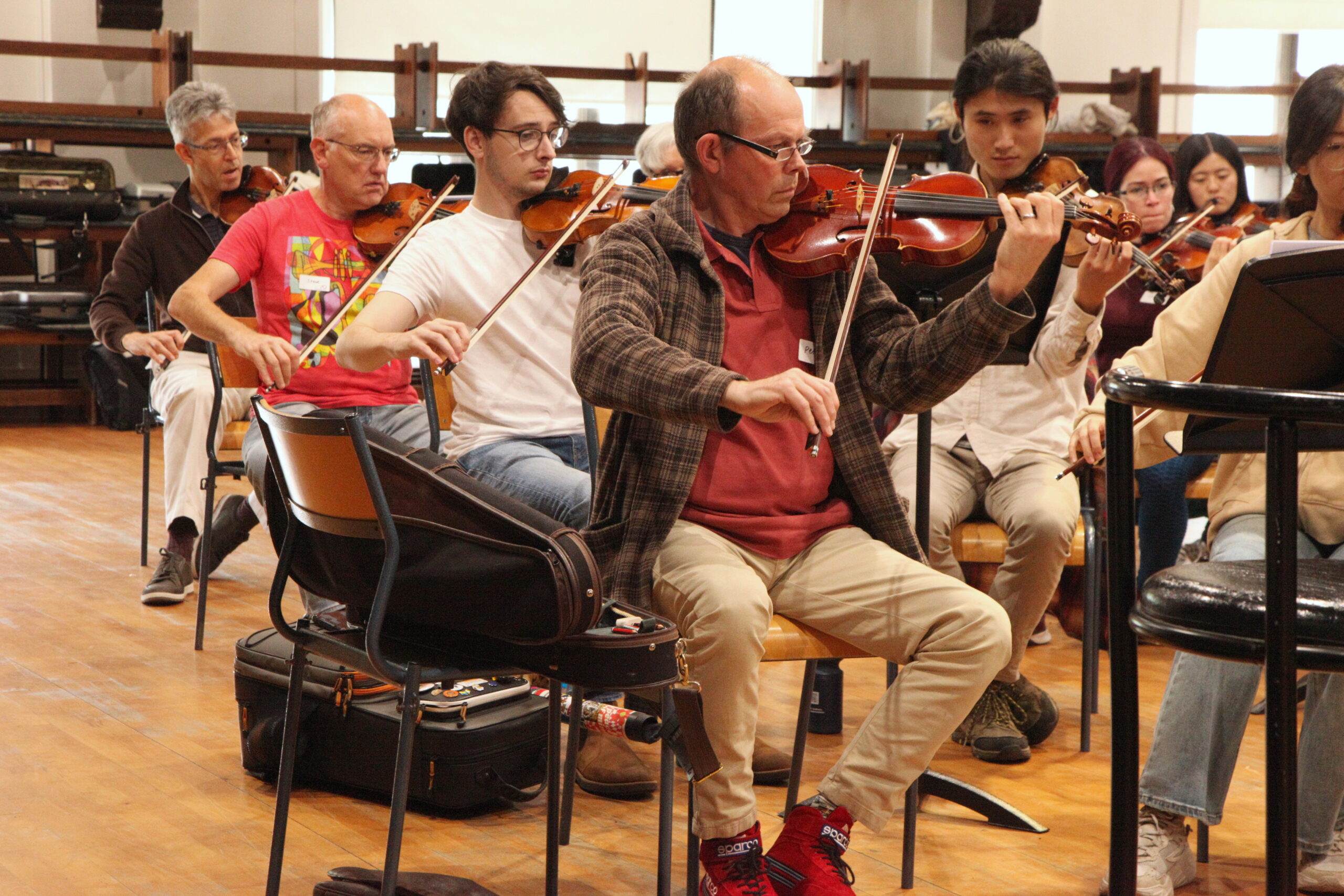Expand your repertoire. Practise that audition excerpt in context. Improve your sight-reading skills. Build your confidence.
Our courses give you a chance to develop your orchestral skills at high level. We simulate professional rehearsal conditions, replicating the speed and focus required for preparing a piece on limited rehearsal time. To do so, you’ll benefit from the support of a team of high-quality and experienced professional musicians.
While we do not give concerts, there is an open rehearsal at the end of each course to which a non-paying audience is welcome. During the open rehearsal, we reserve the right to fall apart, play wrong notes, stop, and generally lose the plot completely – but we very rarely do. By taking away the pressure of performance and placing the focus on the process of exploring a piece of music, we are able to enhance your enjoyment and appreciation of the work while simultaneously achieving a high standard of execution.
A Rehearsal Orchestra course is typically a draining but rewarding experience, and you should come away from it tired and satisfied.
We’re here for experienced players over the age of eighteen. We may occasionally be able to accept players under the age of eighteen, provided a parent or guardian is in attendance.
There are three kinds of Rehearsal Orchestra course: One-day, Two-day, and Full-Week (our annual residential course during the Edinburgh International Festival and Fringe).

Bartók: The Wooden Prince Suite
-
Béla Bartók
The Wooden Prince Suite
Bartók wrote The Wooden Prince as a one-act pantomime ballet (1914–1916) to a scenario by Béla Balázs. Bartók described the ballet as “a kind of elaborate symphonic poem to be danced to”. Despite a successful premiere in 1917, he came to realise that there was much musical padding in the ballet (for which he blamed Balázs). Over the following fifteen years he made many cuts in the stage version, and produced two leaner orchestra suites.
Set in an enchanted forest, The Wooden Prince is based on a fairy tale-like libretto featuring a prince and princess. The two are subjected to various trials, but at the end of the ballet they are allowed to come together and live, we assume, happily ever after. The score’s first few minutes are dazzling, a folk-tinged re-tread of Das Rheingold’s opening, the ensuing music blending ardent romanticism with the grotesque.
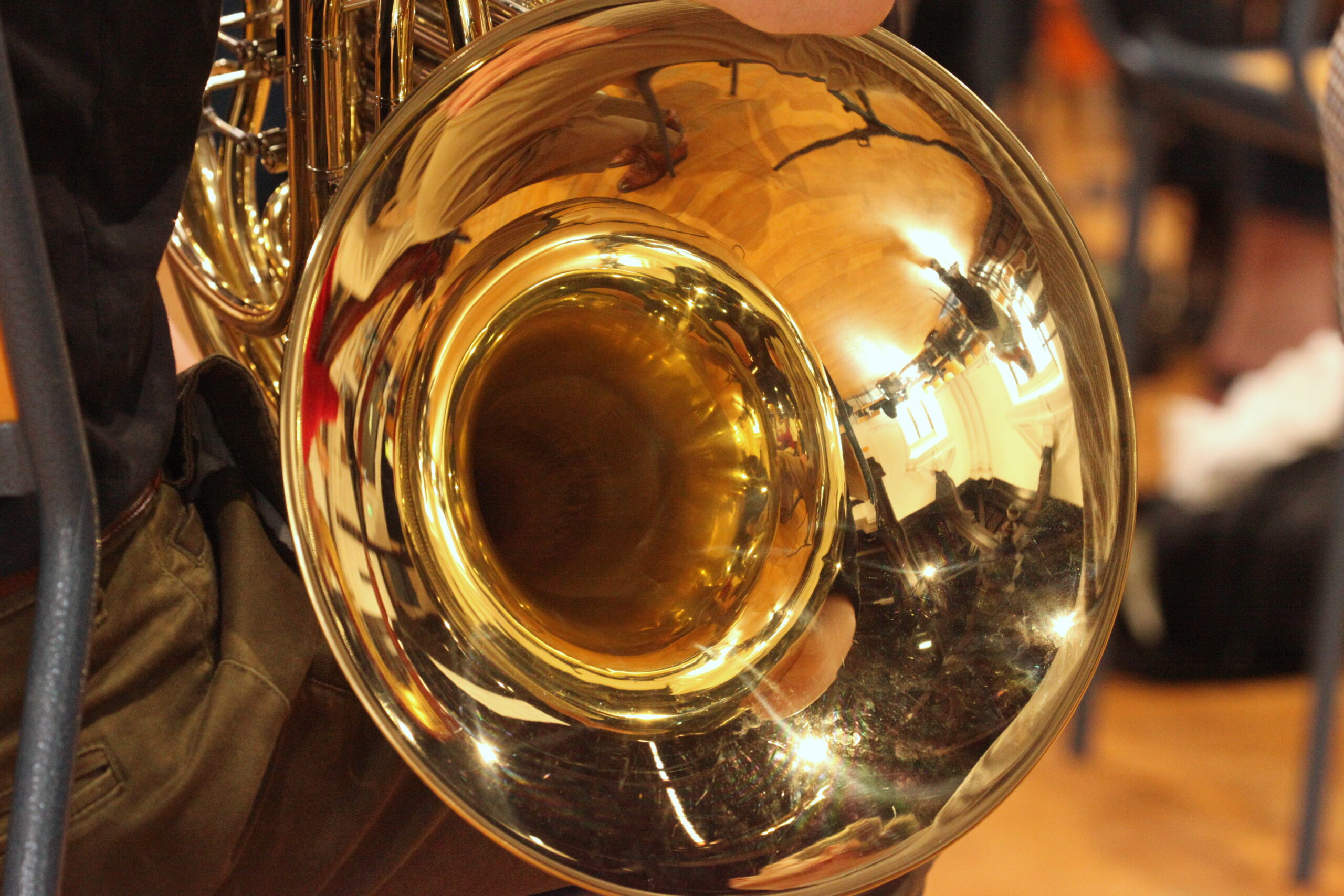
Richard Strauss: An Alpine Symphony
-
Richard Strauss
An Alpine Symphony opus 64
Strauss’s tone poem An Alpine Symphony (Eine Alpensinfonie), premiered in 1915, describes the exhilarating expedition of a trek through the Alpine mountains, featuring waterfalls, glaciers and an ear-splitting storm. Scored for a large orchestra, with additional woodwind and brass, including a heckelphone, Wagner tubas and off-stage brass, the orchestration includes parts for wind and thunder machines, and cowbells.
Applications are invited for all sections of the orchestra from players at Grade 8-plus, or equivalent.

Webern: Passacaglia; Ravel: Rapsodie espagnole
-
Anton Webern
Passacaglia
-
Maurice Ravel
Rapsodie espagnole
These two contrasting masterpieces, by great composers of the 20th century whose musical styles took radically different paths, are united by a moment in time, both being composed in 1908.
Webern’s Passacaglia is, unlike his later work, for the most part lush in tone and texture, relating to a late-Romantic sound and melodic contours that he would later abandon in his quest for a personal, stripped-down style. The simple device of a passacaglia, a mainstay of the Baroque, consists of a short theme in the bass overlaid with a series of variations on that theme. Ravel was born in the Pyrenees, and his mother was Basque, and his lifelong attraction to and mastery of the Spanish idiom is undeniable. Written in only thirty days, the four-movement Rapsodie was an immediate success and firmly established Ravel as a master of the orchestral medium.

Clyne: Color Field; Mussorgsky, orch. Ravel: Pictures at an Exhibition
-
Clyne
Color Field
-
Mussorgsky (orch Ravel)
Pictures at an Exhibition
Mussorgsky’s famous wander round an exhibition of works by Viktor Hartmann, in Ravel’s splendid orchestration, is complemented by Anna Clyne’s 2020 three-movement work inspired by Mark Rothko’s 1961 painting Orange, Red, Yellow.
Applications are invited for all sections of the orchestra from players at Grade 8-plus, or equivalent.

Maconchy: Proud Thames; Vaughan Williams: Symphony No 6
-
Proud Thames
Maconchy
-
Symphony No 6
Vaughan Williams
Vaughan Williams’ Sixth Symphony was his first major post-war work, and its sometimes violent mood inevitably led to it being known as his ‘War Symphony’ – to which he replied “it never seems to occur to people that a man might just want to write a piece of music.” It is paired with his pupil Maconchy’s prize-winning overture, written in celebration of the Thames, depicting “its rapid growth from small beginnings to a great river of sound.”
Applications are invited for all sections of the orchestra from players at Grade 8-plus, or equivalent.
"Music Colleges in the late 1960s did not provide the sophisticated orchestral education current now and so the two summers I spent in the Edinburgh Rehearsal orchestra under the direction of Harry Legge were the best preparation I received for my subsequent orchestral career. I particularly remember playing Shostakovich 8 and Mahler 9. I also had a very good time!"
Meyrick AlexanderPrincipal Bassoon, Philharmonia Orchestra 1980 – 2010 and London Chamber Orchestra 1985 – present; bassoon and orchestral educator.
"I loved my weekend with you all. There is a tremendous spirit and enjoyment about everything that enables wonders to be achieved. Long may you thrive!"
Sir Mark Elder
Edinburgh Week
Our annual August visit to Edinburgh, coinciding with the first week of the International Festival and Fringe. Running from Saturday to Friday inclusive, this is a stimulating week of concentrated music making which has been held every year since the orchestra’s foundation in 1957 (apart from 2020 and 2021). We work through a wealth of repertoire across the week, with rehearsals during the day and the evenings left free for players to explore the city at Festival/Fringe time. At the end of the week, we hold an open rehearsal where we present just a small selection of the work we’ve been doing.
All course fees are subsidised by our fundraising activities and fees are further reduced for students. Some bursary funding is available: please enquire when applying for courses. In addition to the general full and part bursaries we offer, we have two specific bursary schemes:
-
Co-Principal Strings Student Bursary scheme
If you are currently studying full-time at a UK conservatoire and would appreciate the opportunity to work intensively on large-scale symphonic repertoire with professional conductors, without the pressure of public performance, at the same time as benefiting directly from the experience of our professional string principals, why not apply for the Co-Principal Strings Student bursary scheme? Successful applicants will be offered a bursary-funded place on one of our London weekend courses as co-principal first or second violin, viola, cello or double bass. A modest contribution to travel costs is available to participants studying outside London.
-
Play ON bursary programme
Our newest bursary programme, Play ON, initiated in 2022 by a grant from the Victoria Wood Foundation, enables us to offer a number of bursary-funded places on London weekend courses to current conservatoire students and recent graduates across all sections of the orchestra, particularly those who studied and/or graduated during the Covid pandemic. A contribution to travel costs is available to all participants.
Gillian Halse Bursary Fund
Harold Taylor, partner of Gillian Halse Noel who co-founded the Rehearsal Orchestra in 1957, very kindly gave a legacy in his will in Gill’s memory to fund student bursaries for our annual Edinburgh rehearsal week.
To apply for these schemes, please email admin@rehearsal-orchestra.org with your CV.
